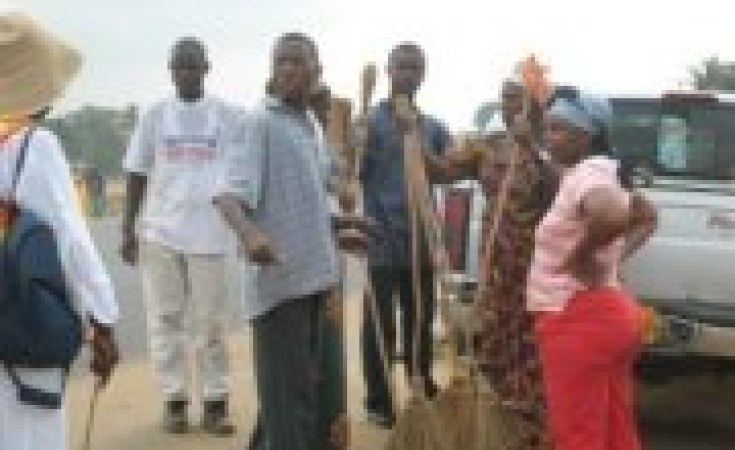Monrovia — The Liberian Government has accelerated a major clean-up of the capital, Monrovia, ahead of U.S. President George Bush's visit to Liberia on February 21.
The main streets are being swept and makeshift structures on the roadside are being demolished.
The Liberian information minister, Laurence Bropleh, emphasized that the clean-up was not just for the visiting American president. It was being carried out as part of the process of creating a clean city in accordance with zoning laws. But he acknowledged that the visit had "given it a boost."
While the Ministry of Public Works breaks down shacks with heavy-duty equipment, a group – mainly comprising women – is removing trash under the banner of a "special project" of the Ministry of State for Presidential Affairs. The group's head, Mary Broh, who is also Liberia's passport director, said this was a special initiative of President Ellen Johnson Sirleaf's office.
Broh stressed that the project will continue beyond Bush's visit. It was time to keep Monrovia clean, she emphasized.
Monrovia has grown significantly following the restoration of peace to Liberia, with many people migrating from rural areas in search of the opportunities the city offers. It is now home to more than a million people, causing serious congestion and sanitation problems – which are a major issue facing Sirleaf's administration.
Past efforts to demolish makeshift structures have been met with resistance. And this time is no exception, with police accompanying the demolition team often involved in confrontations with the owners of the structures.
People who use the makeshift buildings for business, or even sleeping, protest their removal. But officials argue that structures made with scrap and salvaged materials are both fire hazards and threats to public health. On Wednesday, President Ellen Johnson Sirleaf directed her convoy to stop by the roadside so that she could get out of her vehicle and explain to the residents of one illegal settlement why the government needed to take action. Her stop quickly drew several dozen people, eager to see the president they all call "Ellen" up close, as well as to hear what she had to say.


